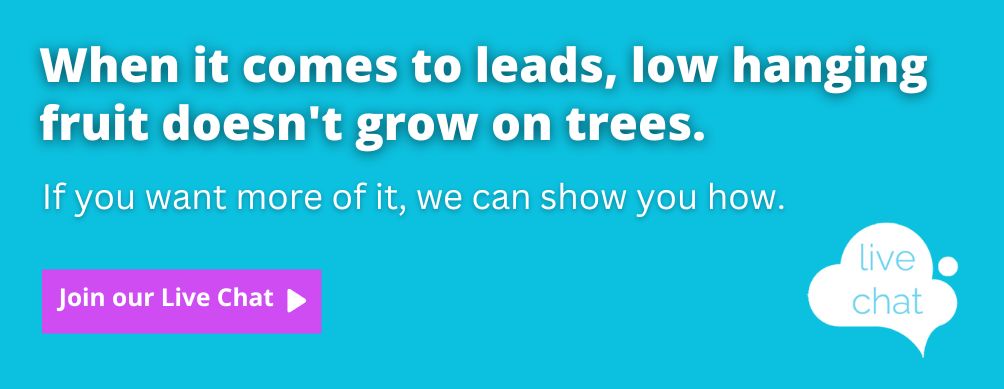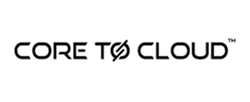Tuesday, August 08, 2023 by Max Sherwood
For startups, expanding into new markets can be a pivotal step towards growth and success. However, the process of entering unfamiliar territories poses unique challenges, particularly when resources, including human capital, are limited.
Here’s why.
A high-intent sales lead can be defined as a potential customer or prospect who demonstrates a strong inclination and readiness to make a purchasing decision and are engaging with your brand.
Unlike general leads, high intent leads exhibit specific behaviours and characteristics that indicate a higher likelihood of converting into a paying customer.
Identifying and prioritising high intent leads is crucial for sales teams as it enables them to focus their efforts on the most promising opportunities, improving efficiency and increasing the chances of successful conversions.
To define a high intent sales lead, several key factors need to be considered:
- Engagement: High intent leads actively engage with a company's marketing and sales initiatives. They show interest by visiting the website, subscribing to newsletters, attending webinars, downloading whitepapers, or requesting product demos. Their level of interaction indicates a genuine curiosity and a desire to learn more about the products or services being offered.
- Qualification: High intent leads typically meet specific criteria that make them a good fit for the business. This could include factors such as industry relevance, company size, budget availability, or specific pain points that align with the solutions provided by the company. Qualifying leads based on these criteria helps identify those who are most likely to benefit from the product or service, increasing the chances of conversion.
- Timing: High intent leads exhibit a sense of urgency and are actively seeking solutions. They may have expressed a need for a product or service in the near term, or they might have specific time constraints or deadlines that require prompt action. Identifying leads who require a solution within a certain timeframe allows sales teams to prioritise and allocate resources accordingly.
- Decision-making authority: High intent leads often have decision-making authority or influence within their organisation. They possess the power to evaluate and make purchasing decisions, enabling sales teams to engage with individuals who can drive the buying process forward. Understanding the decision-making hierarchy and identifying key decision-makers within high intent leads helps streamline the sales process and increases the chances of closing deals.
- Behaviour analysis: High intent leads can be identified through behavioural analysis. This involves tracking and analysing user activities, such as website browsing patterns, content consumption, and engagement with marketing materials. By monitoring these behaviours, businesses can identify signals that indicate a strong intent to purchase, such as repeated visits to pricing pages, comparison shopping, or submitting inquiries.

Conclusion
We think a high-intent sales lead is a prospect who actively engages with a company's marketing efforts, meets predefined qualification criteria, demonstrates a sense of urgency, possesses decision-making authority, and exhibits behaviours that indicate a strong intent to make a purchasing decision. This takes time and buyers will go at their own pace in line with their budget structure.
But you absolutely need to be part of that conversation early doors if you believe industry figures about sellers being too late to the party.
By defining and prioritising high intent leads, sales teams can focus their efforts on the most promising opportunities, improve conversion rates, and achieve greater sales success, but to do this they must have all the information relating to the long-term engagement and triggers that sent them there, to be most effective.
Author: Max Sherwood, The Amigos Network
Email: max.sherwood@theamigosnetwork.com
Frequently Asked Questions
Market Activation identifies in-market buyers (via intent data, behavioural signals) and immediately engages them with tailored outreach (nurture tracks, one-to-one advisor sessions, community invites).
Demand Engine: Targeted outreach (email, ads, sponsorships) that scores clicks → qualified leads → sales-ready appointments.
Performance Dashboard: Real-time visibility into open rates, CTOR, CPL and lead progression via our online sales portal.
Content Amplification: Thought leadership shared in The Amigos Network drives deeper engagement and social proof.
Peer Validation: Prospects get candid feedback from peers on your solutions, shortening the evaluation cycle.
Pipeline Catalysis: Warm introductions and referral paths within the community fuel high- intent conversations.
- Top-of-Funnel: Build credibility through community content and events.
- Mid-Funnel: Leverage peer case studies, expert Q&As, and live demos to answer deep technical questions.
- Bottom-of-Funnel: Invite high-intent members to advisory councils or private 1:1 sessions, often the final nudge before purchase.
- Interesting content: We originate, curate, and syndicate different types of content we know our audiences want to engage with and tell them it’s there.
- Sponsored content: We use sponsored content to drive engagement with individual brands.
- Promotion: We promote that content via multiple channels such as email, social media, YouTube, and so on.
- Identification: We ingest company-level engagement signals and combine it with known contacts that may be researching key topics.
- Segmentation: Members are bucketed by level of intent (high, medium, low) plus ICP fit and company size.
- Activation: High-intent members receive prioritised community invitations (events, focus groups, product deep-dives) to accelerate deals.
- Purchased data highlights who’s in-market.
- Community engagement reveals what questions they’re asking, so your nurture can be hyper-relevant.
- Result: A 2–3× lift in meeting acceptance and pipeline velocity vs. cold outreach alone.
- Marketing owns the nurture tracks, community invites, educational content, and event promos.
- Sales intervenes only at “high-intent + active community engagement” thresholds, with account-specific demos and peer introductions.
- Outcome: Fewer wasted calls and a higher win rate on truly qualified opportunities.
- Engagement Metrics: Community log-ins, event attendance, content downloads.
- Intent Conversion: % of intent-scored members who join private roundtables or request demos.
- Pipeline Velocity: Time from first community touch to opportunity creation.
- Revenue Impact: Contribution of community-sourced deals to overall bookings.
- Average Weekly Open Rate: 40%
- Average Weekly Click-to-Open Rate: 70%
- Average Cost-per-Lead: £45
- Minimum ROI: 500%
- Average Dwell Times: 1 minute 45 seconds




















